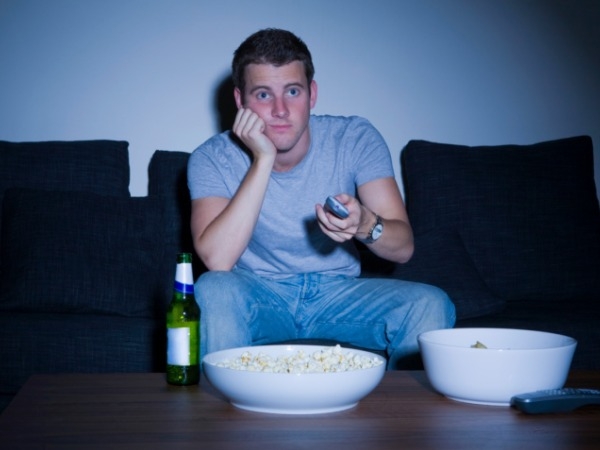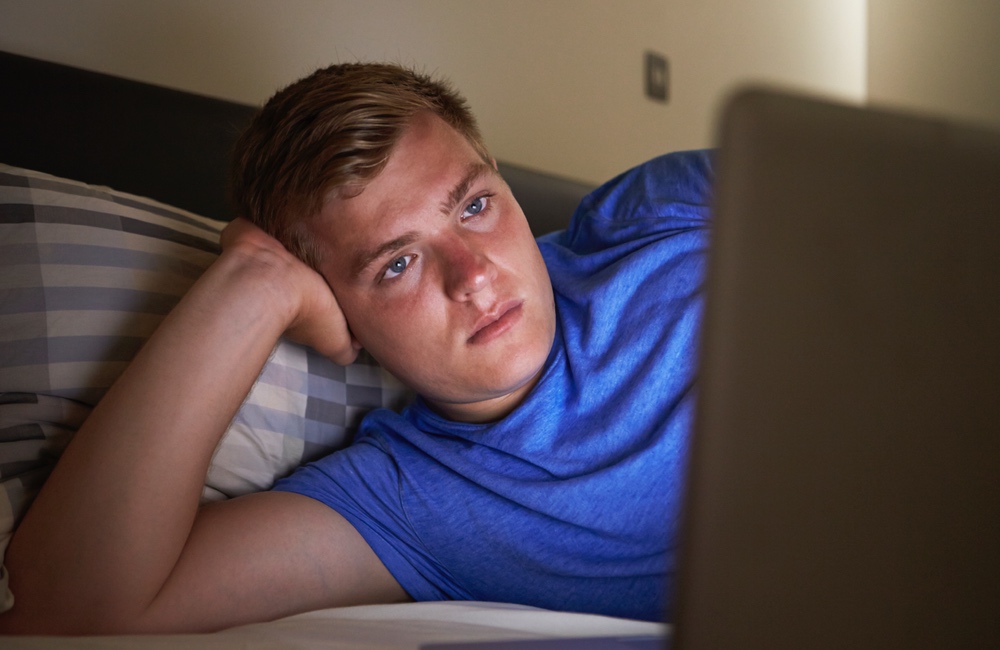

The researchers - who exposed hamsters to dim light at night and picked up changes in behaviour and the brain that bore striking similarities to symptoms in depressed people - said a surge in exposure to artificial light at night in the last 50 years had coincided with rising rates of depression, particularly among women, who are twice as prone as men. The study, by a team of neuroscientists at Ohio State University Medical Center partly funded by the US Department of Defense, will give screen-addicted night owls pause for thought.
#Late night screen time with depression tv
LONDON: Sitting in front of a computer or TV screen late into the night or leaving it on when you fall asleep could increase your chances of becoming depressed, according to a study by US scientists. Caffeine too late in the day can also disrupt your sleep.A boy watching TV.

Both of these can increase symptoms of depression. Try not to look at any bright screens for at least two hours before bed, and dim the lights as much as possible. Yoga and meditation can also help you relieve stress before bed. Calming activities that relieve stress like painting or mindful baking can help you cope with your depression at night. Consider making your bedroom a screen-free room if you can. This can help to make your sleeping space more calming and positive. Keep work and anything stressful outside of the bedroom.Good sleep is important for overall health and well-being. This lets your body start to slow down and get ready for sleep.

To manage your nighttime depression, you may consider trying some of these tips to help improve your symptoms from worsening at night:

They can give you a diagnosis and help you to find treatment that works for you. If your symptoms of depression are new for you or you’re currently not being treated, you should make an appointment to see a doctor. This includes taking your medications, even when you feel fine. For depression symptoms, regardless of the time of day they show up, you should maintain the treatment plan prescribed by your doctor. One 2009 study found that increased artificial light can significantly disrupt our circadian rhythm, causing or increasing mood disorders like depression.įortunately, there are a number of ways you can cope with depression that occurs or increases in severity at night. It’s also thought that if your circadian rhythm is disrupted, your depression may be triggered or your symptoms could increase in severity. In the study, even having a TV on in a dark room increased the animal’s cortisol levels and created changes in their hippocampus, both of which can increase depressive symptoms. According to 2013 research on animals, bright lights (especially blue and white) at night can not only keep us awake, but may also increase symptoms of depression. Researchers have looked into other things that could be increasing our nighttime depression symptoms. But at night, when you settle down to sleep, there’s nothing but you and your thoughts. Work, school, or social activities act as a distraction during the day. During the day, it’s a little easier for some people - especially those with mild or moderate depression - to keep themselves busy. One commonly suggested reason for the increase is the lack of distractions. There are a number of causes that can contribute to increased depression at night.


 0 kommentar(er)
0 kommentar(er)
